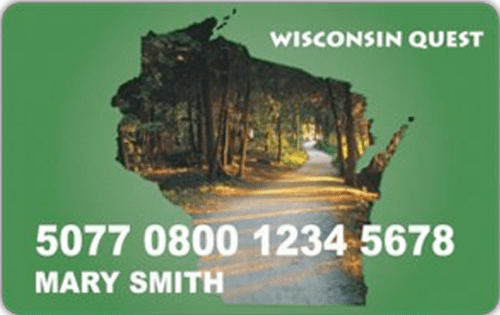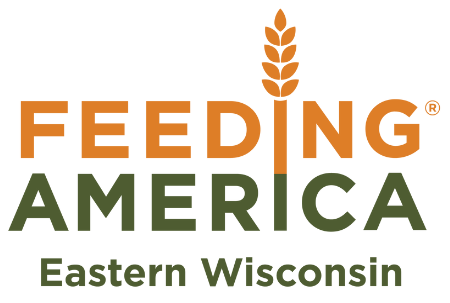The Public Health Emergency Has Ended
The Public Health Emergency ended as of May 11, 2023 Read below to learn about the changes that are coming and what you can do to minimize the impact.

FoodShare Changes
The federal Public Health Emergency (PHE) that has been declared for the United States due to the COVID-19 pandemic since 2020 is ending. The PHE made special exemptions for certain programs like FoodShare to make it easier for people to keep their benefits.
As of May 11, 2023 the PHE will end for the entire county. Once the PHE ends, programs like FoodShare will see many of the exemptions end, and the old rules to maintain benefits will return.
These exemptions were temporary measures and never meant to be permanent changes. The following guide is a tool to help navigate these changes and help eligible people continue to receive their benefits. New FoodShare applications or renewals may need additional information or verification documents to receive benefits.
Exemptions Ending
i. Able-Bodied Adults without Dependents (ABAWD) Time Limits– During the PHE, all states were exempt from time limits for Able-Bodied Adults without Dependent Children.
Update: If you are between the ages of 18-49 and do not have an exemption, you will only be able to receive 3 months of FoodShare every 3 years unless you meet the FoodShare work requirements.
Some common exemptions are:
- Already working at least 30 hours a week (or earning wages at least equal to the federal minimum wage multiplied by 30 hours)
- Meeting work requirements for another program (TANF or unemployment compensation)
- Taking care of a child under 6 or an incapacitated person
- Have someone under 18 in your FoodShare Household
- Pregnant
- Participating regularly in an alcohol or drug treatment program
- Unable to work due to a physical or mental limitation
- Experiencing chronic homelessness
- Studying in school or a training program at least half-time (but college students are subject to other eligibility rules).
ii. College students – During the PHE, if you were a college student, you were able to qualify to FoodShare if you fit these exemptions:
- Having an estimated family contribution of $0 on your financial aid
- Qualifying for work study programs (not necessary to be working, as long as you qualify)
Reminder that if you were able to sign up for FoodShare with a pandemic-era exemption that is ending, you can continue to receive FoodShare until your next renewal.
Update: College students may qualify for FoodShare, but the two PHE exemptions listed above no longer assist with eligibility. If you qualify for FoodShare under a different student exemption, you may continue to receive benefits.
iii. During the PHE, states were not drug testing FoodShare applicants.
Update: If you have been convicted of a drug felony in the last 5 years, you need to take extra steps to maintain your FoodShare eligibility:
- A person may qualify for FoodShare even if they have been convicted of a drug felony in the last 5 years. That person will need to submit a passing drug test as part of their application to be approved for benefits.
- If you are going to be submitting a renewal after the ending of the PHE, you will need to submit a passing drug test to continue to receive your benefits.
I receive FoodShare Benefits and want to be prepared for this change …
SAVE IT: You can save any unspent FoodShare benefits. The benefits will roll over into the next month for up to a year from the last time your card was used.
CONFIRM DETAILS: Make sure the State has your correct address and contact information for important updates. Confirm your contact and income information on access.wi.gov/access or use the MyACCESS mobile app.
REMEMBER MEDICAL: If you are 60 or older, and have certain medical expenses, you may qualify for a larger FoodShare benefit. Give our Specialists a call to see if you qualify at: 877-366-3635.
CHECK BALANCE: The amount of money on your QUEST card is called your account balance. Here are easy ways to check your balance:
- Visit the ebtEDGE website and select Cardholder Login.
- Use the ebtEDGE mobile app. Download the app at the Apple Store or Google Play.
CALL FOR HELP: Call QUEST Card Service at 877-415-5164.
BadgerCare and Medicaid Program Changes
During the COVID-19 pandemic, the federal government required the Department of Health Services to allow BadgerCare Plus and Medicaid members to maintain health care coverage. This policy is ending due to federal legislation passed in December 2022 (Consolidated Appropriations Act, 2023). Renewal deadlines will begin in June and are spread out over 12 months (June 30, 2023 – May 31, 2024). Members should wait until they receive their renewal packet to complete their renewal. Renewing early could result in members losing coverage earlier than their assigned renewal date.
Update your contact information
- Members should make sure DHS has their current address, phone number, and email so they can get essential information and renew their benefits by their assigned due date
- Easily update your information on access.wisconsin.gov or use the MyACCESS app
Find your renewal date
- People can find out their current renewal date by creating an account on access.wi.gov or the MyACCESS app. *Double check the year*
Renew your benefits & do not renew early!
- Renew your benefits starting 45 days before your renewal date. Do not renew early! If you renew too soon, you could lose your benefits early if you no longer qualify.
- Reminder that if you have a FoodShare renewal due before your Medicaid renewal, that the renewal for FoodShare is done separately
If you no longer qualify, check out these options
- Ask if you have health insurance at your job
- Apply within 60 days of losing BadgerCare or Medicaid.
- Apply for Medicare if you are 65 or older
- Apply within 6 months for Medicare Part A and B.
- Apply within 3 months for Medicare Advantage Plan and Medicare Part D.
- Call the Medigap Helpline (800) 242-1060.
- Apply on HealthCare.gov (Federal Health Insurance Marketplace):
- Financial help is available from HealthCare.gov.
- Many people can find a plan for $10 per month or less.
- Find a free or low-cost clinic
- Call the 2-1-1 Helpline to find a clinic near you.
Need help renewing?
- Call a Healthcare Navigator at (262) 581-2216 or schedule an appointment online. https://coveringwi.org/enroll
Medical Deductions
- If you or your household has a person that is 60 years or older, or has a disability, you may be able to add qualifying medical expenses to your FoodShare case https://www.dhs.wisconsin.gov/library/collection/p-03315b
FoodShare and Medicaid Scams
- Members have reported receiving texts claiming their Foodshare benefits will be cancelled unless they confirm their personal information such as their PIN or password. They are told to call the number contacting them to do so. Once they do this the scammer will use that information to steal their Foodshare benefits.
- If members have been contacted, they should check their balance using MyACCESS or by calling their local agency. Local agencies are also where members should report any suspicious texts or emails.
- If members have been contacted by a suspicious number or by a number asking for personel information, they should consider changing their PIN, password, or username.
- To help ensure their safety and security members should avoid using email addresses and names of family members or pets for usernames and password. Members should also avoid using birthdates, repeated numbers (1111), consecutive numbers (1234), or patterns (1212) for their PIN.
Wisconsin’s Department of Health Services (DHS) warns of a new Medicaid renewal scam that is targeting Medicaid members via text message. Changes are coming to Medicaid and BadgerCare because of the public health emergency ending. Renewals have returned and DHS is contacting members about their upcoming renewal date. Scammers are taking advantage of this and sending their own messages to these members.
- Members have received two scam text messages about their benefits
- 1st scam text: States case is at risk of cancellation
- 2nd scam text: States that benefits have been cancelled and requests that the member call 877-687-4221. If the member contacts the number, they are informed that they have lost their health insurance coverage and need to pay to be reinstated.
- DHS texts and emails will never send messages with this type of language
- DHS does not charge a renewal or recertification fee
- Will not ask for personal info (Birthday and social security number)
- Will not ask for financial information (bank account and credit card number)
What can you do?
- Be aware of the scam
- Only pay attention to text messages from DHS. They will text you to send important updates about your benefits, remind you of upcoming renewal dates and share time-sensitive information.
- Texts will come from 94347 (WI DHS)
- Emails will come from dhs@info.wisconsin.gov
- Report Suspicious Activity:
- Contact your local agency to report texts that are not sent to you by DHS
- Contact Wisconsin’s Consumer Protection Hotline: 800-422-7128 or DATCPHotline@wi.gov
Additional Resources
Visit our Find Help page for additional resources, mobile pantry calendar, and use our pantry locator to find food assistance near you.
- Find your BadgerCare renewal date, how to renew and more information
- Worried About Losing Your BadgerCare Plus or Medicaid?
- ¿Preocupado por perder su cobertura de BadgerCare Plus o Medicaid?
- Renew BadgerCare in ACCESS
- Connect with One of Our FoodShare Outreach Specialist Using Our Form
- Find Your FoodShare Specialist Across The State
- Printable Flyer (English)
- FoodShare Loss Impact Across Eastern Wisconsin
- Presentation: Ending of FoodShare Extra Benefits
- Recording: Ending of FoodShare Extra Benefits
In accordance with Federal civil rights law and U.S. Department of Agriculture (USDA) civil rights regulations and policies, the USDA, its Agencies, offices, and employees, and institutions participating in or administering USDA programs are prohibited from discriminating based on race, color, national origin, sex, disability, age, or reprisal or retaliation for prior civil rights activity in any program or activity conducted or funded by USDA.
Persons with disabilities who require alternative means of communication for program information (e.g. Braille, large print, audiotape, American Sign Language, etc.), should contact the Agency (State or local) where they applied for benefits. Individuals who are deaf, hard of hearing or have speech disabilities may contact USDA through the Federal Relay Service at (800) 877-8339. Additionally, program information may be made available in languages other than English.
To file a program complaint of discrimination, complete the USDA Program Discrimination Complaint Form, (AD-3027) found online at: https://www.ascr.usda.gov/complaint_filing_cust.html, and at any USDA office, or write a letter addressed to USDA and provide in the letter all of the information requested in the form. To request a copy of the complaint form, call (866) 632-9992. Submit your completed form or letter to USDA by:
mail: U.S. Department of Agriculture
Office of the Assistant Secretary for Civil Rights 1400 Independence Avenue, SW
Washington, D.C. 20250-9410;
fax: (202) 690-7442; or
email: program.intake@usda.gov .

